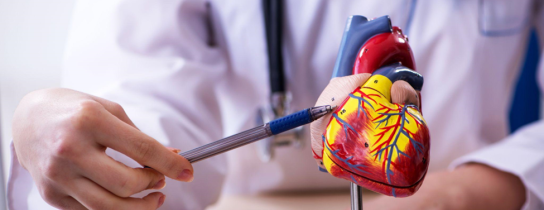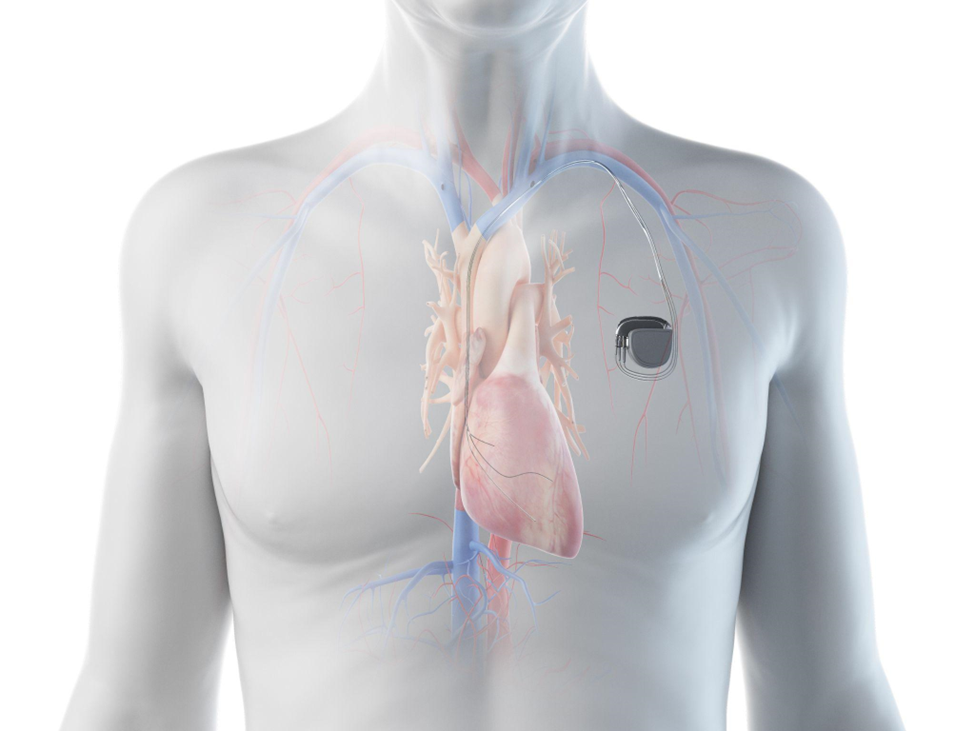
Electrical Heart Disorders
Even the suspicion of heart disease in any form can be frightening. In most cases, any condition related to the heart should be treated immediately by a medical provider. However, understanding what might be going wrong, how it affects your body, and the possible treatment options available to you can put you at ease and give you a more informed insight into the diagnosis and treatment process.
Here are all the most pertinent questions regarding electrical heart disorders and when to get help from a provider.
What Is the Electrophysiology of the Heart?
In this case, electrophysiology refers to the electrical conduction of the heart. Your heart is controlled by involuntary electrical impulses that keep it beating and in rhythm. Your heart sends these impulses from its sinoatrial node, which works like a pacemaker.
Once this impulse is sent, the electrical signal travels from the top to the bottom of your heart, telling the muscles to contract and pump blood in the right order.
What Is an Electrical Heart Disorder?
An electrical heart disorder or heart rhythm disorder is usually caused by something going wrong with the impulses needed to keep your heart beating. When your heart chambers pump in the wrong order, or impulses are sent too quickly or too slowly, it may cause an irregular heartbeat, which is one of the first signs of an electrical heart disorder.
General Symptoms of Electrophysiological Disorders of the Heart

Although symptoms may vary slightly between conditions, general signs of an electrical disorder of the heart include:
- Slower or faster heart rate than normal
- Irregular heartbeat
- Heart palpitations
- Dizziness
- Fatigue
- Fainting spells
- Chest pain
- Difficulty breathing during sleep
- Shortness of breath
These symptoms may only appear in certain situations, such as during emotional outbursts, when you’re stressed, or while sleeping.
Types of Heart Electrical System Disorders
There are many different types of electrical disorders of the heart. They typically result in your heart beating too fast, known as tachycardia, or beating too slow, which is called bradycardia.
These arrhythmias are typically caused by an underlying electrical heart disorder, of which the most common include:
Long QT Syndrome
Long QT syndrome, also known as LQTS, occurs when the lower heart chambers take too long to contract and pump blood out. The arrhythmia resulting from LQTS is more common to occur when an individual is frightened by a noise, participating in physical activity, or feels an intense negative emotion.
In most cases, the heart rhythm returns to normal quite quickly.
Heart Block
Heart block is the name for a condition where the electrical impulses that pass between the heart's upper and lower chambers are slower or impaired. This causes the heart to beat irregularly, and the condition can continue to worsen through several different degrees.
- First-degree heart block is when the electrical impulses move between your heart chambers at a slower rate than normal. This causes your heart rate to slow down.
- Second-degree heart block is when the heart’s electrical signals don’t reach the bottom chambers, which can cause “dropped beats.” At this point, medical intervention is necessary.
- Third-degree heart block refers to when electrical impulses from the upper chambers can’t pass on to the lower chambers at all. The lower chambers will still pump blood but at a slower rate than usual, and blood flow to the body may be impaired.
Bundle Branch Block
Every heart has four chambers, two on the left and two on the right. Each side has its own branches down which electrical impulses travel that tell the heart muscles to contract. When one of these branches gets “blocked,” or the signals can’t pass through them, the electrical impulses have to take a different route, which can slow them down.
Most people with Bundle Branch Block disorder don’t experience symptoms, and often treatment isn’t necessary. However, combined with other illnesses, this condition may pose a problem.
Causes of Electrical Disorders of the Heart
There are many causes and contributing factors that may result in the development of an electrical heart disorder. These include:
Genetics
- Some people are born with conduction disorders. Others develop it later on in life. There are some electrical heart disorders that are more common among families. These include:
- Third-degree heart block is more common in babies whose mothers have a connective tissue disorder.
- Brugada syndrome is a rare conduction disorder that causes the lower chambers of the heart to beat fast and irregularly. It is more common in people of Asian descent, specifically Japanese, Thai, and Filipino.
Age
Although these disorders can present themselves at any age, some, like bundle branch blocks, are more common as people age.
Pre-Existing Medical Conditions
Some illnesses can contribute to or cause the development of an electrical heart disorder. These conditions include:
- Autoimmune disease
- Heart disease
- Irregular thyroid hormone levels
- Sleep apnea
- Muscular dystrophy
- Blood vessel disease
Medication
Certain medicines aimed at treating high blood pressure, heart conditions, and mental illness could increase the risk of developing an electrical disorder of the heart.
When to See a Doctor
Even though some types of electrical heart disorders don’t cause symptoms or discomfort, they can quickly become life-threatening under certain conditions. If you feel like your heart often beats too fast or too slow, or it feels like it's regularly skipping a beat, make an appointment to see an electrophysiologist.
Electrophysiologists are experts in diagnosing and treating arrhythmias and electrical disorders of the heart. An electrophysiologist can also help you make lifestyle and medication changes to prevent possible strokes, control palpitations, and maintain a regular heart rhythm.
When to Get Emergency Care
Call an ambulance or get to a hospital immediately if you experience any of the following symptoms alongside a suspected arrhythmia:
- Shortness of breath
- Weakness
- Dizziness
- Fainting
- Lightheadedness
- Chest pain
Treatments for Heart Electrophysiology Disorders

There are a range of treatments available for patients with an electrical heart disorder. Treatments vary greatly depending on the type and severity of the disorder, but the most common options include:
Medications
Drugs that control your heart rate are typically given to people experiencing a tachycardic rhythm, while blood thinners are typically given to patients with atrial fibrillation, which can cause blood clots in the heart.
Surgery
- Surgeries to treat electrical heart disorders often involve catheters or implanting a cardiac device like a pacemaker.
The most common surgical procedures include: - Ablation, where your provider threads a catheter through the blood vessels to the heart. The catheter’s tip can be used to make small scars on your heart muscles to block abnormal impulses.
- Pacemakers create electrical impulses to make up for your heart’s naturally slow or irregular ones. This can help control arrhythmias like bradycardia by speeding up your heartbeat.
- Implantable cardioverter-defibrillators (ICDs) are battery-powered machines that are implanted under your skin and work similarly to a pacemaker. The ICD monitors your heartbeat and rhythm. When an irregular heartbeat is detected, the machine sends out small shocks to reset your heart’s normal rhythm.
Therapy
Some forms of electrophysiology heart procedures, like vagal maneuvers, can help slow your heart rate by focusing on the nerves that control your heartbeat. Another therapy, known as cardioversion, can reset your rhythm by administering a shock to reset your heart and restore your regular heartbeat.
How Crystal Run Healthcare Can Help
Crystal Run Healthcare is a medical care provider based in New York. Our expert electrophysiologists and cardiologists have extensive experience diagnosing, managing, and treating electrical heart disorders.
If you have been diagnosed with a conduction disorder or suspect you may experience arrhythmias, get in touch with Crystal Run Healthcare today or visit our website to schedule an appointment.

 Optum Radiology at Crystal Run Healthcare
Optum Radiology at Crystal Run Healthcare Same and next-day pediatric appointments
Same and next-day pediatric appointments